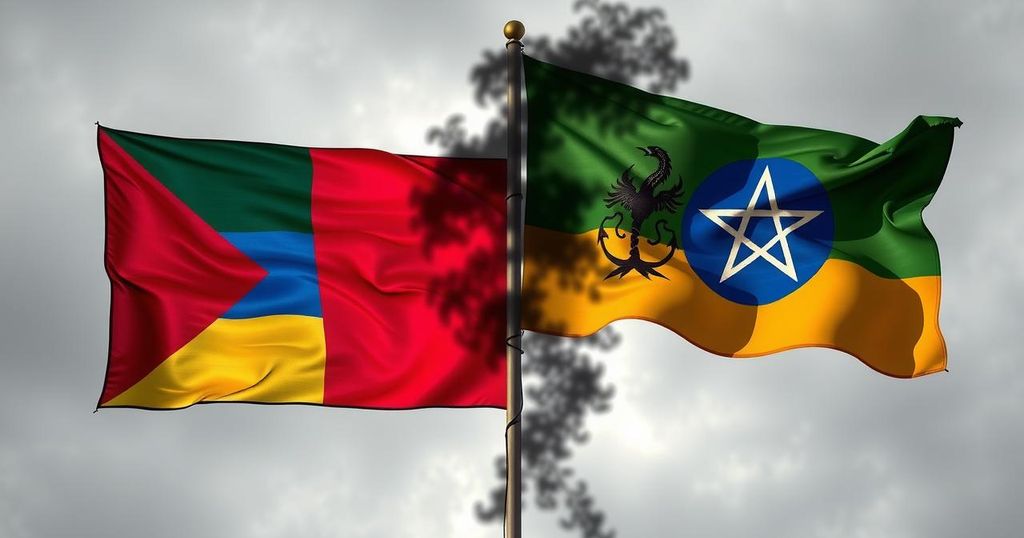Tensions Escalate as Somalia and Ethiopia Clash Days After Peace Accord

Somalia accused Ethiopian forces of attacking its troops in Doolow, Jubaland, just days after signing a peace accord aimed at resolving ongoing tensions between the two nations. The incident has escalated into fighting over political control, threatening the recently brokered agreement and sparking concerns regarding Somalia’s sovereignty.
Somalia has accused Ethiopian forces of launching a deadly assault against its troops in a border region, mere days after an agreement was reached to alleviate simmering tensions between the two nations. The Somali foreign ministry reported that Ethiopian soldiers attacked Somali positions stationed at an airstrip in the town of Doolow, located in Jubaland state, around 10:00 am. The ministry revealed that the assault targeted three military installations and resulted in casualties, although specific numbers were not provided. Meanwhile, Jubaland officials claimed that Ethiopian forces intervened to safeguard local politicians during the incident.
Recent weeks have seen escalating clashes between the Somali federal government and Jubaland forces over key territorial control. Jubaland’s security minister, Yusuf Hussein Osman, indicated during a press conference that the conflict began when federal forces received orders to engage an aircraft carrying a Jubaland delegation, which included state officials. Eyewitness accounts describe fierce fighting, leading to injuries among Somali federal troops before Ethiopian forces intervened to assist Jubaland allied units.
The situation is particularly concerning as it jeopardizes a diplomatic agreement brokered by Turkey less than two weeks ago, which sought to mitigate nearly a year of disputes between Somalia and Ethiopia. This discord intensified earlier in the year when Ethiopia’s agreement with Somaliland over leasing a coastal area for strategic purposes was perceived by Somalia as an infringement of its sovereignty. Following a meeting between Ethiopian Prime Minister Abiy Ahmed and Somali President Hassan Sheikh Mohamud in Ankara, signs of resolution emerged; however, the recent clash has undermined the agreement.
In its statement, Somalia’s foreign ministry condemned the actions of Ethiopian forces, declaring this incident a blatant breach of the accord. The ministry expressed its firm stance against any violations of Somalia’s sovereignty, emphasizing that such acts would not be tolerated. The ramifications of this clash may provoke further diplomatic tensions as the nation focuses on restoring stability within its borders and maintaining sovereignty.
The ongoing conflict in the Horn of Africa has been marked by a complex relationship between Somalia and Ethiopia, particularly influenced by internal divisions in Somali regions such as Jubaland. Somalia is a federal state composed of several semi-autonomous areas, which often contest authority with the central government in Mogadishu. An earlier agreement between Ethiopia and Somaliland, which includes leasing coastal territory, heightened tensions as Somalia interpreted this as a challenge to its territorial integrity. The diplomatic landscape shifted when the Turkish brokered meeting seemingly paved the way for a resolution, but hostilities have erupted again, complicating peace efforts and regional stability.
In conclusion, the clash between Somali and Ethiopian forces illustrates the fragile nature of diplomatic agreements in the region and underscores the ongoing struggle for power and control within Somalia. Following an accord aimed at reducing tensions, the violent outbreak signifies potential setbacks in regional cooperation and raises concerns about sovereignty and territorial integrity. The response from both governments will be crucial in shaping future relations and stability in the region.
Original Source: www.barrons.com








